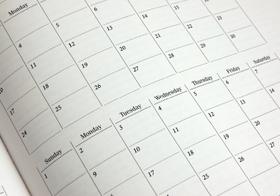This is another article in a series that focuses on how to apply for private school employment. You are probably reading this, and thinking that applying for a job at a private school is just like applying for any other job. In some respects you're right. The actual application process will be similar. However, the questions which you will have to answer will require in-depth responses. Also, you will have to supply three references which the school will call if you make it to their shortlist of candidates. Understand these differences and distinctions so that you can beat out the competition. Yes, private school teaching positions are very competitive in most areas of the country.
When you apply for a private school teaching or administrative position, you will encounter several ways of presenting your personal data and information. If you are instructed to complete an online application or a downloadable application form, that resolves the issue of making your application easy to read. The school will have removed all those decisions from you and the other applicants.
Here is an example of an online application used by a Chicago private school.
On the other hand, if you are faced with a free-form situation with little or no guidance from the school as to what to present, or where the school expects you to write short answers or essays, then the tough choices are yours to make. The guiding principle for any free form employment application is to make the best possible impression. You can do that by making sure your employment application is clear, flawless, and tailored to suit the specific position for which you are applying.
Here is an example of a free-form application. You will find this type of application used for more senior positions at a school. Schools frequently use academic search firms such as Carney Sandoe and Isaacson, Miller to develop a short list of suitable candidates. Why is this significant? It means that an experienced search professional will be reviewing all applications before the school sees that short list of suitable candidates.
Now let's review the essentials that private schools will expect in your job application.
Clarity
Creating a clear, compelling resume sounds simple enough. Sadly, most people do not craft a resume that presents them in the best possible light. The trick to writing a good resume is to write it knowing that somebody who has never met you and knows nothing about you is going to read it and make a judgment about whether to interview you or not. Second chances are unlikely. You need to get it right the first time.
Nowhere is clarity more important than in that small paragraph which most resumes caption as "Objective". This is where you state your career direction and why you would be ideal for the position being offered. This will be the most difficult paragraph you have ever written. Why? Because you must state clearly what kind of job you are seeking and why you are the perfect candidate for the position. Draft your "Objective" then hone it until it tells the reader at first glance that they must interview you.
As one of the experts in the job searching field, Alison Doyle, states succinctly:
"The resume reader should immediately be drawn to skills and information relevant to the position they are seeking to fill. Take the time to match your qualifications to the job when deciding what information to include on your resume."
Perfection
Perfection is another critical element in making your job application easy to read. Typos and other glitches make the wrong statement about you. Think of typos and other imperfections in your job application in the same way you regard somebody whose makeup is smudged or whose clothes don't fit nicely. If you know the person, you will forgive and move on, right? But the person reading your job application doesn't know you. Therefore, those imperfections are a strike against you. You might make the 'interview' pile if your credentials are truly impeccable and impressive. But why take the chance?
As Google Senior Adviser Laszlo Bock points out in The Biggest Mistakes I See on Resumes, and How to Correct Them:
"Mistake 1: Typos. This one seems obvious, but it happens again and again. A 2013 CareerBuilder survey found that 58% of resumes have typos.
In fact, people who tweak their resumes the most carefully can be especially vulnerable to this kind of error, because they often result from going back again and again to fine-tune their resumes just one last time. And in doing so, a subject and verb suddenly don't match up, or a period is left in the wrong place, or a set of dates gets knocked out of alignment. I see this in MBA resumes all the time. Typos are deadly because employers interpret them as a lack of detail-orientation, as a failure to care about quality. The fix?
Read your resume from bottom to top: reversing the normal order helps you focus on each line in isolation. Or have someone else proofread closely for you."
Who is your competition? You will not know how many applications the school has received for that position. In a competitive job market where there are more applicants than there are jobs, It is simply foolish to take a chance by submitting a job application which isn't perfect.
Tailor to Suit
If you are applying to several private schools, it makes sense to use the same basic materials, doesn't it? Not exactly. Never write a generic "one size fits all" paragraph stating your objective. Read the job posting very carefully and scour the school's website from start to finish, making certain that what you state in your objective is what they want. If the resume reviewer cannot see the match instantly, your application will most likely end up in the "reject" pile.
Luckily for you, word processing software allows you to customize your application, resume, and supporting materials for each specific job opening. Don't be lazy and take shortcuts in this step. The time invested in customizing your application materials will make your application stand out. By making your job application easy to read, you stand a much better chance of having your application read and put in the 'interview' pile.
As with just about every other aspect of your job search, make sure that your mentor or other trusted advisor reviews the application and supporting materials before you click "Submit" or mail it.
Questions? Contact us on Facebook. @privateschoolreview
























